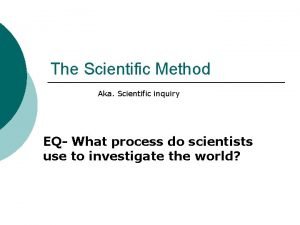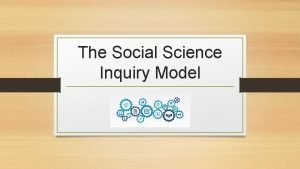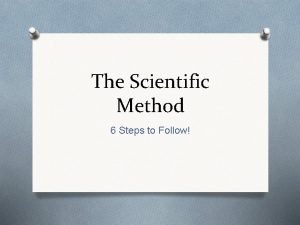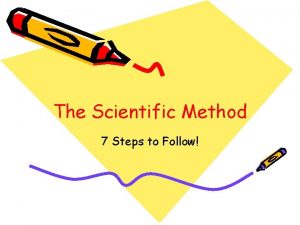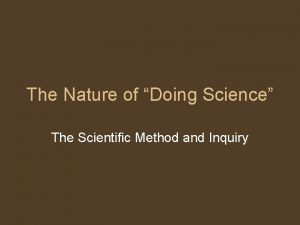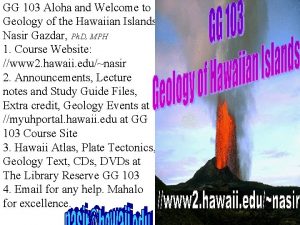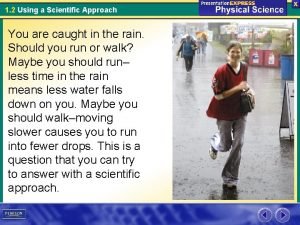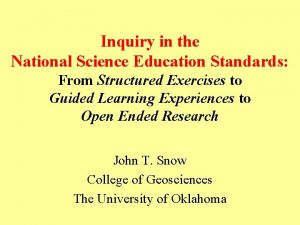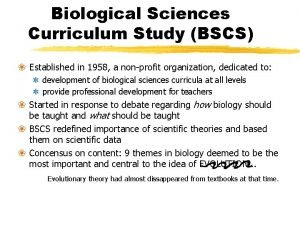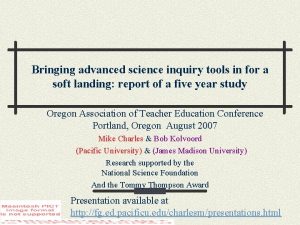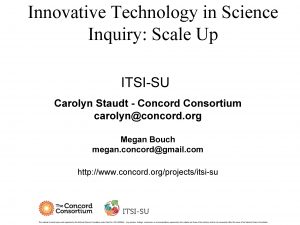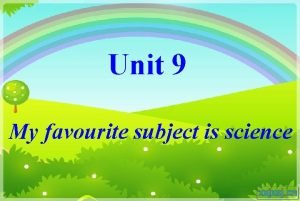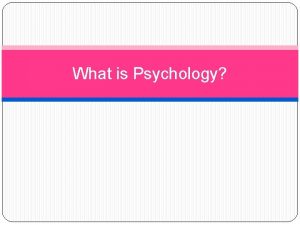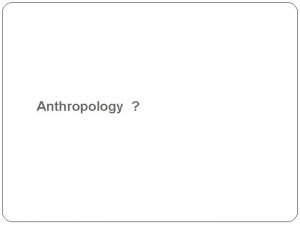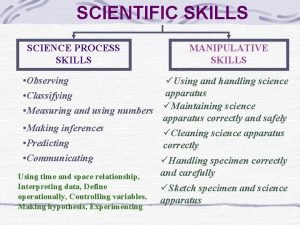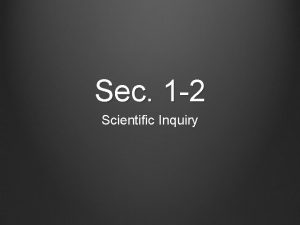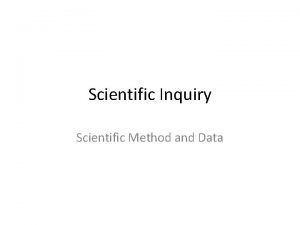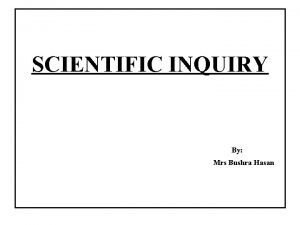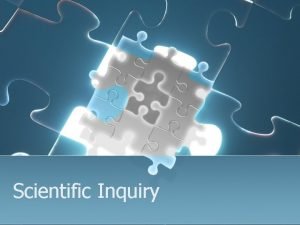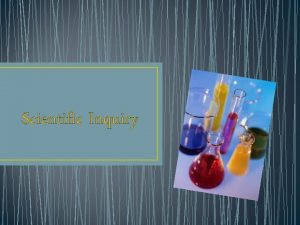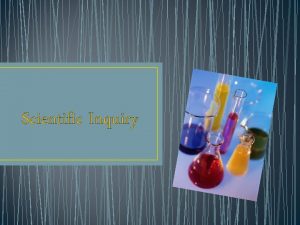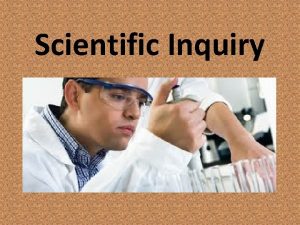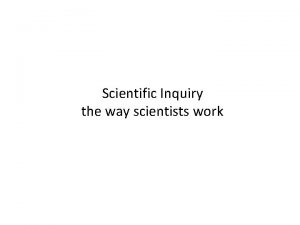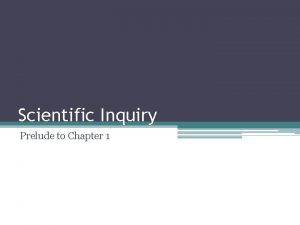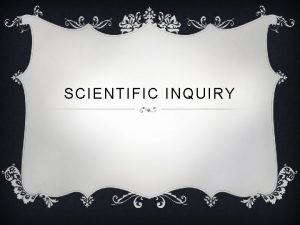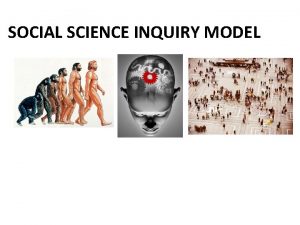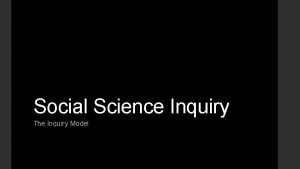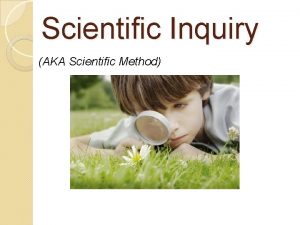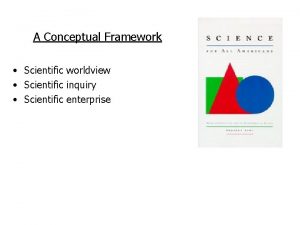Social Science Scientific Inquiry What makes social science

















- Slides: 17

Social Science & Scientific Inquiry What makes social science “scientific? ”

What is Science?

“Pre-reqs” for Scientific Thinking • Curiosity: Desire to know WHY? And HOW? • Scepticism: Re-examine past explanations and re-evaluate evidence • Objectivity: Try to not let personal preconceptions, prejudices, or desires influence interpretation of facts

Science Not just what we know, but how we know • What we know: Scientific Knowledge – Body of knowledge that has been systematically gathered, classified, related, and interpreted • How we know: Scientific Method – Method of acquiring knowledge through systematic observation, measurement, and/or experiment • Goal: Discover rules that explain natural or social phenomena

Two Pillars of Scientific Knowledge Logic Evidence

Scientific Method: Steps The “rules” for building scientific knowledge • Make Observations and Ask a Question • Do Background Research • Construct a Hypothesis (“Educated Guess”) to Explain Observations • Collect Evidence through More Observation to Test the Hypothesis • Analyze or Interpret the Data and Draw a Conclusion

Scientific Method: Criteria The “rules” for building scientific knowledge • Reliability: Other researchers can independently repeat the study and obtain similar results • Precision: Concepts must be defined with enough precision that other researchers can use those definitions to measure or study them too • Falsifiability: A theory must be able to be tested • Parsimony: When there is more than one explanation for a phenomena, accept the most simple explanation

“Science is a way of thinking much more than it is a body of knowledge. ” Carl Sagan American Scientist & Writer, 1934 – 1996

Film: Myth Busters - Penny Drop

Film: Myth Busters Penny Drop • Is it scientific? Why or why not?

Critical Response Paragraphs! • See hand-out for guidelines • First Assignment: How does “Myth Busters – Lights On or Off? ” demonstrate the scientific method? DUE: Thursday, September 5, In-class OR by e-mail by midnight

Film: Myth Busters – Lights On or Off

Scientific Knowledge: Two Categories Natural Sciences “Hard Sciences” Social Sciences “Soft Sciences” Examples: Biology Chemistry Physics Geology Examples: Sociology Psychology Economics Political Science

What’s the difference? Some Challenges for SOCIAL Science • Ambiguity: Social sciences deals with concepts hard to define and measure; Natural sciences tend to be more precise, accurate, specific – Need to provide very clear definitions for what we observe and measure

What’s the difference? Some Challenges for SOCIAL Science • Ambiguity: Social sciences deals with concepts hard to define and measure; Natural sciences tend to be more precise, accurate, specific – Need to provide very clear definitions for what we observe and measure • Human element: Sometimes more difficult to set aside personal biases when studying other people – Try to recognize all your own personal biases that might influence your findings

Do Opposites Attract? • Read the two articles • What variables are they looking at to determine if opposites attract? • Are the articles in total disagreement? • Do you think the headlines are misleading or not?

Summary • Science is not just a body of knowledge, but also the way we acquire the knowledge • Another way to say it: Science is not just a product, but a process • Social science is scientific because it uses evidence and logic to explain social phenomena
 Scientific inquiry vs scientific method
Scientific inquiry vs scientific method Social science inquiry model 8 steps
Social science inquiry model 8 steps List the 6 steps of the scientific method
List the 6 steps of the scientific method 7 step of scientific method
7 step of scientific method What is scientific inquiry?
What is scientific inquiry? Nature of scientific inquiry
Nature of scientific inquiry What does gg mean
What does gg mean How is a scientific law different from a scientific theory?
How is a scientific law different from a scientific theory? National science education standards inquiry
National science education standards inquiry Bscs
Bscs Science inquiry tools
Science inquiry tools Innovative technology in science inquiry
Innovative technology in science inquiry Social inquiry definition
Social inquiry definition What is your favorite subject
What is your favorite subject Social science vs natural science
Social science vs natural science Rapid change
Rapid change Www.sciencebuddies.org
Www.sciencebuddies.org Scientific skills
Scientific skills
